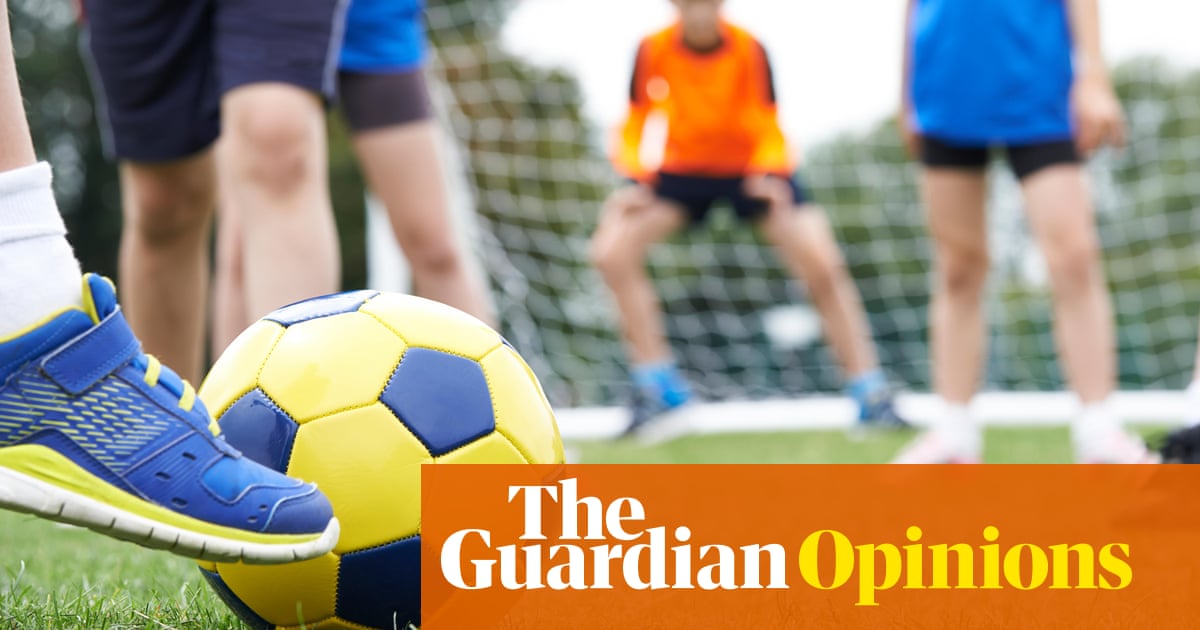Karma may not be instant, but it is invariably ironic. So it is that, after four decades of remaining steadfastly opposed to competitive sport, I now spend early mornings, late afternoons, occasional evenings and every weekend driving my children to an ever-expanding range of sporting activities.
The sharpest twist of the irony blade is that, having spent my own childhood as the player no wise coach would want on his team, I am now the coach of four separate floorball teams. (Yes, I know you haven’t heard of floorball,look it up.) To coach one team may be regarded as an accident; four looks like a weird addiction. But here I am.
Coaching competitive kids sport often feels like a pure and highly concentrated form of parenting. If parenthood spells out your failings as a human being across several decades, coaching tends to do so in half hour bursts, with a running scorecard. Many of the parenting decisions you make under pressure will be wrong, but rarely can they be so well quantified.
As with parenting, coaching has brought me into close and uncomfortable contact with aspects of my own character that had been hitherto concealed. In my pre-sporting life, I prided myself on being rational and easygoing. Unfussed and unruffled. It turns out that this calm exterior was a front – I am instead ruthlessly competitive, capable of resisting the doe-eyed and pleading stare of a benched player (or parent) for the sake of the team. I just feel terrible about it afterwards.
Sign up for a weekly email featuring our best reads
If coaching is sometimes fraught – some of the most poisonous WhatsApp messages I’ve seen have been connected to kids’ sport – that’s because sport brings into sharp focus our conflicted ideas about what childhood is for. Is it a space for fun and creativity, or a time to learn how to chase goals and compete with your peers?
Outside coaching, I’m very much in the former camp. Kids should run free and wild. There will be time for work and worry later. But I can also (despite a lifetime of resisting this lesson) see the value in helping kids work as a team towards a common goal, which in turn means helping them identify and hone skills that might not immediately be obvious to them or anyone else.
So much of parenting is helping your kids find the path that means something to them. (And then forcing them out of the house every Saturday morning to do something they will love.) As a parent, it can be hard to detach your hopes and expectations for your children from the dreams they actually want to pursue. Coaching has brought this home to me. To lift kids up, you need to be willing to see the strengths they have, not the ones you need, expect or desire. Give kids the chance to prove you wrong.
Sometimes this means direction and sometimes it means giving them the space to prove themselves – and discover those skills for themselves. Our eldest, when younger, seemed to have inherited my non-sporting genes, but another (better) coach helped her discover a hidden gift for goalkeeping. Last week she tried out for her first international tournament. There is room for everyone on the court and not every position is for every player.
As I’ve come to terms with my unexpected competitiveness, I’ve also come to realise that tough love is overrated. A training session shouldn’t be a bootcamp. I’m not immune to the parental urge to prepare your children for a tough and uncaring world, but I now try to prepare them for trials without freaking them out.
One of our teams consistently lost in semi-finals and I came to realise we were losing because, well, they were the semi-finals, with all the stress that brings. Stressed kids don’t play well.
Instead of getting them worked up for a tough game, I now spend the ten minutes before the game reassuring them. They know what to do. They have worked hard. They’ve got this. The astonished look on that team’s faces at the end of this season’s semi as they realised they had beaten a previously unbeatable team was priceless. It turns out sport can be funandcompetitive.
I came into coaching – and parenthood – thinking it was all about tactics and strategies. Making tough choices and keeping an eye on the big picture. This is true. But it is also – of course – about basic psychology. Not simply directing kids but helping them discover parts of themselves that might otherwise remain hidden. Helping them build meaningful and productive relationships with each other and with themselves.
Unfortunately, while coaching might be good for the kids’ mental health, that doesn’t always translate to the parents. I am so well-trained in worrying about my own kids that it has been all too easy to start worrying about entire teams of them. It embarrasses me to admit that I have had sleepless nights before big matches and plenty more after bad matches, wondering what I could have done better.
Which brings me to the biggest lesson. Those are not my matches. Those are not my games. When we invest in our children, whether as coaches or parents, we often expect a dividend. All too often, we can see our children as a means to correct the mistakes we have made or the wrongs we have suffered. But it’s not about us.
The most important – and unjust – double standard for parents and coaches alike is that, while our children’s failures are often our fault, their triumphs never are. While we can enable, our children’s victories should always belong to them alone.
Myke Bartlett is a writer and critic
